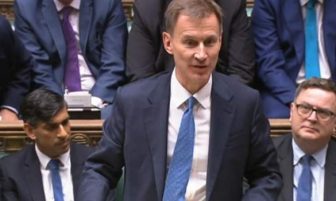
Jeremy Hunt will deliver his second spring budget since taking over as chancellor on Wednesday in what could be the last big fiscal moment before a general election later this year.
The chancellor has said he wants to bring down taxes in a “responsible” way, but that does not include second homeowners who make money from short-lets, it would seem.
Fourteen years of Tory economics have proved challenging for the buy-to-let market, characterised by tax and regulatory changes, and yet this week’s Budget will contain a £300m tax raid on the rental sector, according to a report in the Sunday Times yesterday, which is thought to be the subject of a leak from government.
Propertymark has expressed grave concern about the potential impact this latest tax raid could have on the rental sector.
Nathan Emerson, CEO Propertymark, commented: “Propertymark are extremely concerned to see reports within the news of a rumoured £300m attack on landlords within the budget, all at a time when many have already left the sector and many more are just about holding on.
“Just like traditional homeowners, inflation and interest rates have hit landlords with force and there needs to be recognition from the UK government that to provide high quality homes, whether they be short term lets or longer-term housing, the system must be workable.
“It is unacceptable there is constant aim being taking at landlords to the point the viability of the entire system is becoming seriously questionable for both existing landlords and future investors.”
Also responding to speculation of £300m take upheaval to rental sector with the budget, a spokesperson commented: “Propertymark are extremely concerned to see reports within the news of a rumoured £300m attack on landlords within the budget, all at a time when many have already left the sector and many more are just about holding on.
“Just like traditional homeowners, inflation and interest rates have hit landlords with force and there needs to be recognition from the UK government that to provide high quality homes, whether they be short term lets or longer-term housing, the system must be workable.
“It is unacceptable there is constant aim being taking at landlords to the point the viability of the entire system is becoming seriously questionable for both existing landlords and future investors.”


In 2004, I attempted to advise HMRC on how they could identify all landlords who should be submitting SA105 Land and Property submissions. HMRC was not interested, as we were a commercial organisation and, at that time, government and commercial interests were like oil and water—they didn’t mix.
I tried again in 2012 and managed to engage two senior officials from HMRC, who realised they weren’t collecting £2 billion because, in the words of the HMRC representatives, “SA105 is an opt-in tax, and not enough landlords have opted in.”
Identifying all individuals and companies that should be paying tax on private rented or short-let income is not difficult. However, I was informed in 2012 that very simple and politically non-controversial changes would not be implemented because they would make identifying tax liability too easy. All that’s required is for property portals to be included as data holders for the purpose of Schedule 23 of the Finance Act. This would identify all the Schedule 23 data holders who, on a month-by-month basis, identify 4.5% of properties where SA105 L&P submissions are required. Every 22 months, HMRC would get a near-perfect view of all properties being let out.
If council tax receipts were monitored to determine in what capacity the council tax was being paid, it would be very simple to identify home owner-principal residence, home owner-secondary/tertiary/quaternary/quinary, business, or tenant; any council tax receipted by tenants is an indication that there’s a landlord, some of whom don’t use agents in order to avoid Schedule 23 scrutiny.
You must be logged in to like or dislike this comments.
Click to login
Don't have an account? Click here to register
They compelled airbnb to report all earnings to HMRC from the start of this year. Effectively that was when this was already baked in.
You must be logged in to like or dislike this comments.
Click to login
Don't have an account? Click here to register
They can’t be off including AirBnB; they’re effectively an agent in respect of Schedule 23 and so are data holders who if asked could be compelled to detail every host they’ve ever had to see if hosts are submitting SA105 L&P
You must be logged in to like or dislike this comments.
Click to login
Don't have an account? Click here to register
Landlords have taken a hammering, and I’m amazed it’s taken this long to attack holiday let owners. As a past owner, I can say we’ve had it too easy for too long, and the politics and economics have finally caught up.
Maybe, now, the landlords who moved to short term letting to beat the taxman, will now be forced to return to the PRS… or join those exiting the sector.
You must be logged in to like or dislike this comments.
Click to login
Don't have an account? Click here to register